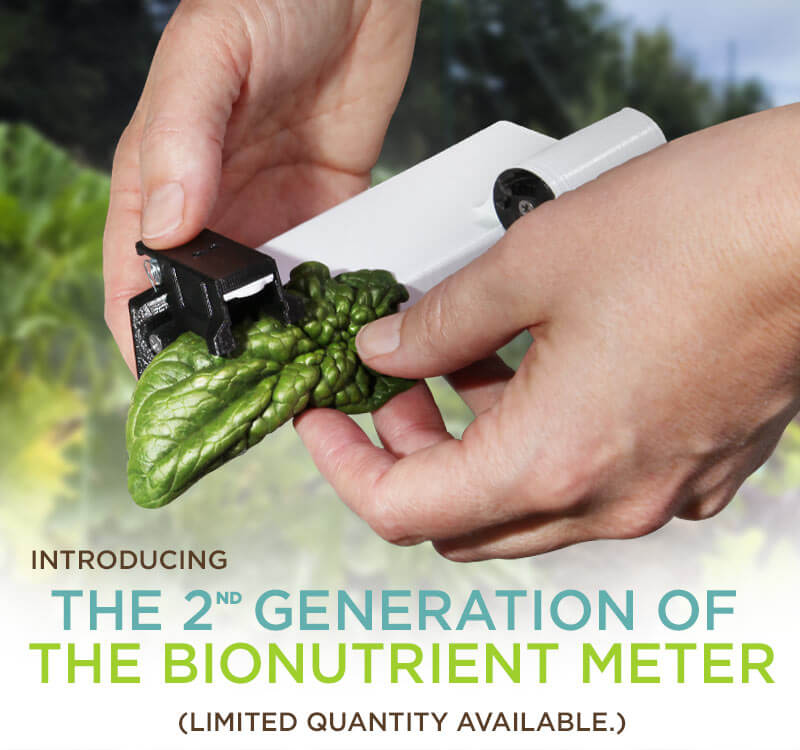
That’s right, we have built a developer/prototype model (now, second generation) of our handheld spectrometer, and have already distributed hundreds of devices. These early adopters are helping us gather the data necessary to propel our inspired open-source project forward. In collaboration with farm partners and citizen scientists from around the world, the Bionutrient Institute is analyzing samples from a wide range of farm practices and environments, building a rich series of overlapping datasets which can help us understand the connections between management, environment, soil health and nutrient density.
Learn more about how you, too, can get involved, and different ways you can collaborate as a grower, consumer, activist, researcher or company.
There has never been more need for a food-testing tool like this. Together, let's put nutrition back on the table!
The Bionutrient Food Association has been working to improve food quality since its inception in 2010, and one of the key ways we identified to do so was to align economic leverage and supply chain transparency. It is said, people vote with their dollars. Markets are driven by demand. We believe there is a growing awareness that not all food is equal, and quality - of nutrient levels, taste, and shelf life - can vary greatly. Short of tasting before buying, the cues we shoppers have for determining the quality of our food are unreliable at best. And industrial agriculture has worked hard over many decades to develop and promote varieties that emphasize visual appeal and transportability at the expense of quality and taste.

Now imagine going to the farmers market, flashing a light at several different carrots or a head of lettuce, and comparing their nutritional values in real-time. Readings would likely show variations in quality - some are nutrient dense, while others are not. Which ones would you purchase? Given the option, wouldn't you start basing your buying decisions on how good it was for you and your family?
Our guess is yes. If the consumer is empowered at point-of-purchase to see what it is they are buying, producers will no longer be able to skate by with visually appealing, but poorly grown and nutrient deficient product. We believe this real-time accountability in the marketplace has the potential to dramatically impact the food system, our farms, our health, and our ecosystem.
The bionutrient meter is a major step on that path.



